Atherosclerosis
-

Study finds chronically disrupted sleep may increase risk for heart disease
Vanderbilt research found that sleep irregularity — chronically disrupted sleep and highly variable sleep durations night after night — may increase the risk for atherosclerosis. Read MoreFeb 15, 2023
-
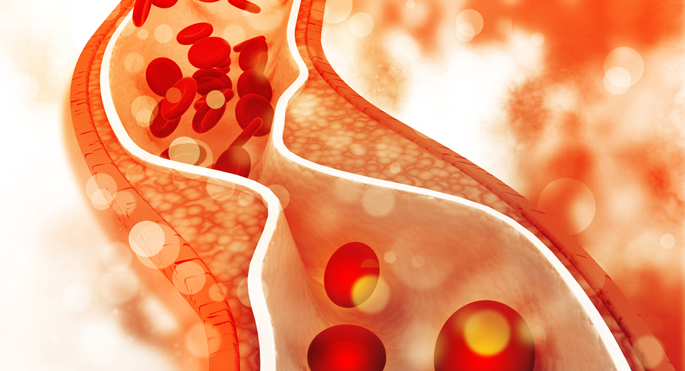
Study suggests new mechanism for lipid transporter
A new model suggests that a protein involved in the generation of high-density lipoprotein (HDL) works differently than previously thought. Read MoreSep 15, 2022
-
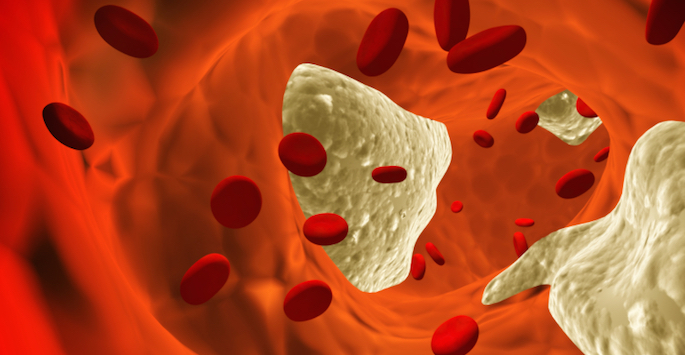
Potential protection from atherosclerosis
Vanderbilt researchers have discovered a potential way to reduce atherosclerosis: blocking the modification of an HDL-associated enzyme by reactive molecules called isolevuglandins. Read MoreAug 19, 2021
-

Nature’s “recycler” could reduce heart disease risk: study
Researchers at Vanderbilt University Medical Center have identified potential new targets for the prevention of atherosclerosis through the enhancement of autophagy, a natural process for recycling damaged cellular material. Read MoreJul 8, 2021
-

‘Scavenger’ molecule may point to new atherosclerosis treatment
A small-molecule “scavenger” that reduces inflammation and formation of atherosclerotic plaque in blood vessels in mice potentially could lead to a new approach for treating atherosclerosis in humans, according to researchers at Vanderbilt University Medical Center. Read MoreAug 20, 2020
-

Soy food, metabolism and the microbiome
Consumption of soy foods may shape the microbiome and protect against hypertension only in individuals with soy-responsive microbiota, Vanderbilt researchers have discovered. Read MoreJul 27, 2020
-
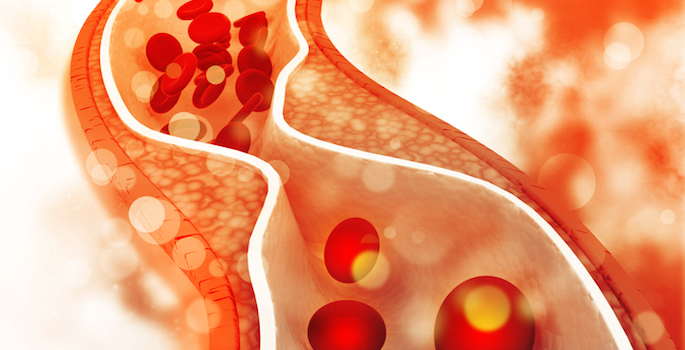
A new contributor to atherosclerosis
Sean Davies and colleagues are exploring lipid aldehydes produced during oxidative stress and their contribution to HDL dysfunction and atherosclerosis. Read MoreJan 27, 2020
-

New look at atherosclerosis
A new imaging method makes it possible to directly measure cell division and changes in metabolism in atherosclerotic plaques. Read MoreJul 11, 2019
-

Scavengers “protect” HDL
Lipid molecules that bind to HDL can modify its function — and blocking that modification can protect HDL and potentially lower the risk of atherosclerosis and heart disease. Read MoreJun 29, 2018
-
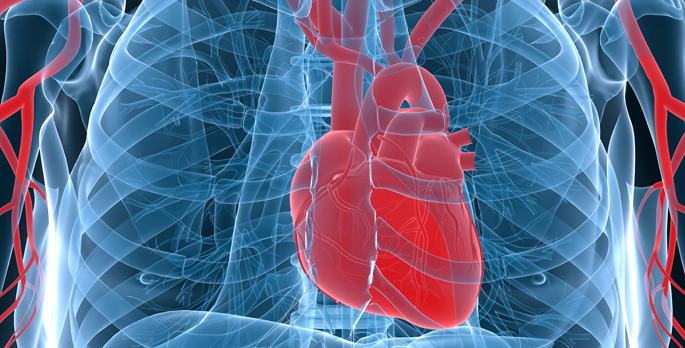
Team sees success clearing blocked coronary arteries
When atherosclerosis develops in the coronary arteries over a period of time, complete blockage of that artery can result in chest pain, shortness of breath and decreased quality of life. Read MoreApr 9, 2015
-
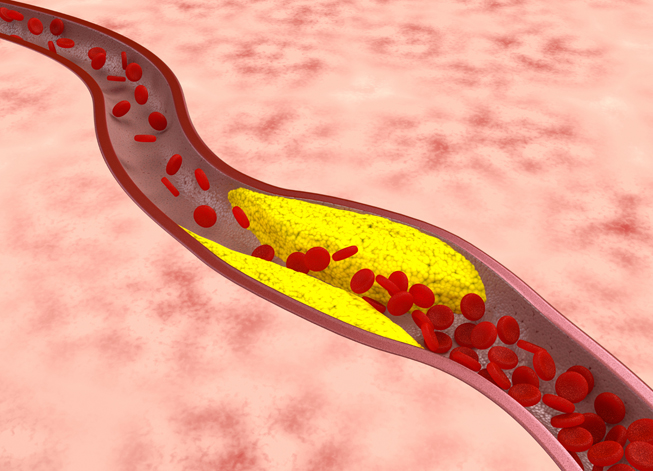
Target for atherosclerosis therapies
A newly identified “atheroprotective” gene is a tool for exploring plaque pathophysiology and may be a good target for therapies to slow atherosclerosis progression. Read MoreDec 17, 2014
-
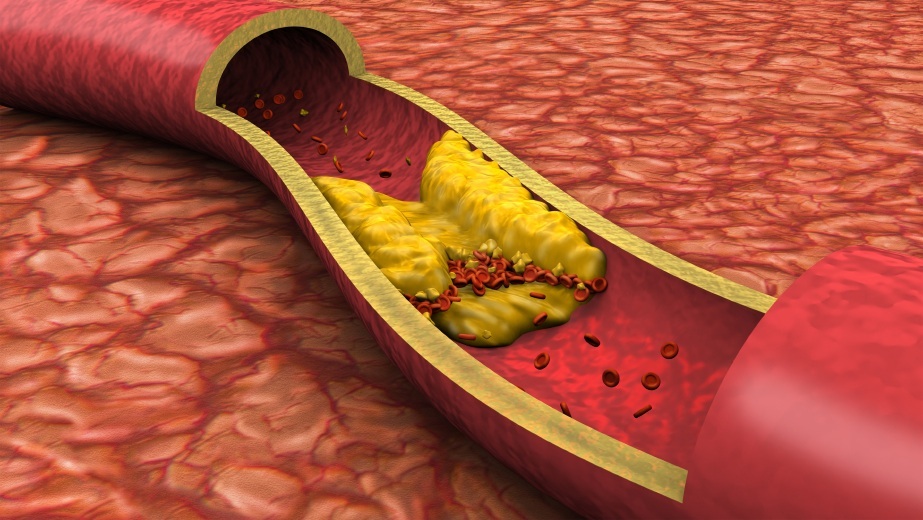
Protein implicated in atherosclerosis
Vanderbilt researchers have discovered a new target for the prevention of atherosclerotic plaque development and cardiovascular disease. Read MoreNov 25, 2014
-

Major grant spurs deeper look into ‘good cholesterol’
In some cases, HDL, the "good cholesterol," may not function properly and may actually accelerate atherosclerosis. Read MoreAug 21, 2014
-
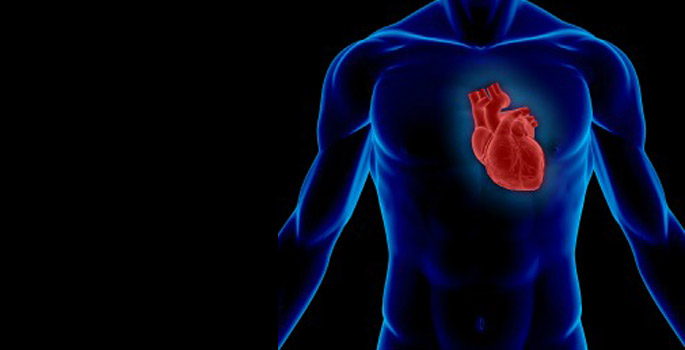
Early study reveals ‘nuclear’ strategy for atherosclerosis
Vanderbilt University scientists have discovered a potential new strategy for lowering cholesterol and triglyceride levels and stopping atherosclerosis and fatty liver disease. Read MoreApr 18, 2013
-

Move out, cholesterol
Compounds developed at Vanderbilt could offer a whole new way to treat atherosclerosis. Read MoreDec 8, 2011
-
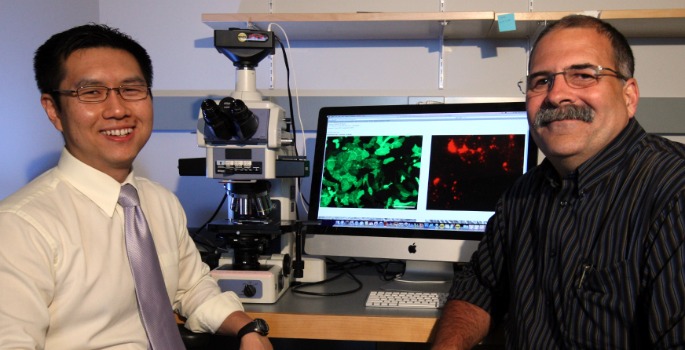
Receptor ‘ties’ together blood flow, atherosclerosis
A discovery about the causes of atherosclerosis, a cause of heart attacks and strokes, may lead to new treatments. Read MoreJun 22, 2011